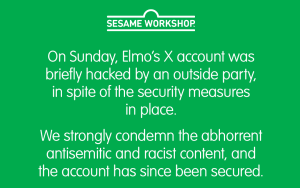The successfully performative cultural commentator Emily Gould recently announced that she has decided to stop being mad at Lena Dunham.
If you would assume that she was mad for the same reasons everyone else had been (more on those momentarily), you’d be wrong. Gould had been jealous of Dunham’s relative success in a similar field, if not necessarily the same profession. Gould admitted as much to a reporter, word got back to Dunham, and awkwardness between two Jewish women ensued.
Writer-envy, a story as old as time.
Emily Gould – Lena Dunham feud
— Wiki Controversies Bot (@WikiControversy) October 17, 2021
Gould has also attracted criticism and controversy for her public feud with the actor and writer Lena Dunham pic.twitter.com/zhU1BvOHba
Something about this story seemed familiar—which led me to remember that I’ve had my own parasocial relationship to this anecdote for oh my goodness nearly a decade. (We can’t all be splitting the atom.)
Eight years ago, I was an editor at The Forward. Sounds prestigious, right? Let me start again: I was a freelancer, part-time, at the ‘Sisterhood’ blog aimed at seeking social media clicks from otherwise elusive young women. The real goings-on of New York’s most storied Jewish publication remained out-of-reach, reserved for the full-time staff. Along with this supporting role, I was writing a book, The Perils of “Privilege,” that came out a couple months later. The book got coverage, but was met with a great big why is this lady writing a book about online call-out culture, who cares?
Well, people eventually would care about online call-out culture! They didn’t then. Maybe they should have gone on not caring. Maybe the world would be in a better place.
But set all of that aside. The point is that while I was more of a writing-world insider than some, from where I sat, the likes of Lena Dunham or Emily Gould were in another stratosphere. I wished I could be jealous of Lena Dunham, but I was too busy being jealous of Emily Gould!
I share this story not because the nuances of who sits where in intellectual or artistic hierarchies is inherently compelling (resentments kind of are, though), but to convey the extent to which even seemingly similar people can interpret the same events in radically different ways. That will be relevant, so bear with me.
I wrote about how I got over a grudge for the Cut's Grudge Week https://t.co/i6BnfKF0DG
— Emily Gould (@EmilyGouldNYmag) February 11, 2025
Here’s the bit that is plausibly of general interest. Gould remembers the Lena Dunham of 2014 as life’s winner, a celebrated success:
“I avoided her work, denying myself the pleasure everyone else around me found in Girls. I tried as best I could to live my life as though she didn’t exist, except when intrusive thoughts popped into my head about how I’d never be as rich, famous, successful, and well-liked as she was or when I simply couldn’t avoid a subway poster advertising her new book, or a new New Yorker essay…”
This is the stuff of a great personal essay because it tells you everything you need to know about Gould at the time (at least, as she is choosing to present herself), and does so precisely in what it leaves out about Dunham. Gould was going through a lot of stuff, stuff she has written eloquently about in personal essays, and there is I believe a forthcoming memoir. What she saw in Dunham was stardom. There was a lot she missed.
As an objective fact, Lena Dunham was ubiquitous in the 2010s. But was she “well-liked”? Arguably nobodies like myself, or less-ubiquitous somebodies like Gould, were better-liked, if only by comparison. There was this whole entire anti-Lena-Dunham think-piece industry. Most of us move through life ignored. Not Lena Dunham.
And everyone hated her. (Not everyone-everyone! I was anti-anti-Dunham in my book! See this excerpt.) Some of this was a simple matter of, she was a young woman in the public eye without being conventionally good-looking. This got people mad, but no one wanted to say that was their objection, so they came up with other justifications. Dunham was a nepo baby! Except she wasn’t, not really—her parents are artists, but not household names. Consider how actresses like Lily Collins and Lily-Rose Depp—stunning, and the children of actual famous people—have strangely not been at the centre of privilege controversies in ways experienced by Dunham.
Ready to address charges of nepotism on Girls: It is true. My father did play doubles tennis with the creator of Clarissa Explains It All.
— Lena Dunham (@lenadunham) March 25, 2013
Girls happened to air on HBO at the precise moment (2012-2017) when cultural criticism ceased distinguishing between representation and endorsement (as in, if a character says something offensive, this gets interpreted as the show agreeing with the character). And it happened to have a protagonist out of the Jewish comedy tradition of self-deprecating loserdom. But what was permissible in George Costanza-channelling-Larry David in the 1990s was, for complicated reasons, unacceptable in Dunham’s portrayal of protagonist Hannah Horvath in the 2010s. This was a time when could write a think-piece about all the white people getting ahead, and most or all the ones you named could be Jewish, and no one would comment on this. (Not no one. I was out there, commenting on this.)
This was also the moment when arts reviews became analyses of whether a work was problematic. It’s hard to explain, from the vantage point of 2025, what ‘problematic’ was, because it was all-encompassing. It didn’t mean that a TV show was pro-hate propaganda. It could mean that the cast wasn’t racially diverse enough, or that it was racially diverse but with tokenization, or that it was racially diverse and with developed characters but a white creator. Or a #MeToo’d creator. It could mean that the show depicted wealthy people without bonking viewers over the heads with a disclaimer: ‘This show is about rich people’.
The Lena Dunham child abuse controversy, explained http://t.co/HosEOCajx7
— Vox (@voxdotcom) November 8, 2014
If you want to know what 2014 was like, I refer you to this passage, from a Vox explainer article about why conservatives had mistakenly accused Dunham of child abuse, due to an ungenerous reading of a memoir I have not read and thus am not commenting on:
“Dunham has long had critics in some quarters of the feminist left. Those critics by and large do not believe that she molested her sister.”
OK, so moving on, right? Not in 2014!
“But they do believe that this incident underscores what, for them, has long troubled them about Dunham: what they see as a rich, white woman privilege that makes her insensitive to people different from herself. Those feminists have criticized Dunham for falling well short of the feminist poster-woman status they believe she claims. They point to Dunham’s past actions—under-representing or ignoring people of color on her show, making jokes about rape and molestation, outing her sister—as revealing problematic views on race, feminism, and LGBT rights that stem from privilege.”
What was that all about? The gist, to translate from 2014-ese, is that Dunham has been falsely accused of an abhorrent crime, but that we should not let this distract from the fact that people are mad at her for the amorphous crime of “privilege.”
I read this and imagined a 2014-style Vox explainer about the Dreyfus Affair. It would go something like this:
Alfred Dreyfus did not commit treason, the crime for which he is imprisoned on Devil’s Island. The antidreyfusard right-wingers are wrong on that front. But left-wingers will correctly point out that he comes from a bourgeois family and is therefore kind of a nepo baby. Yes he’s Jewish and yes fin-de-siècle French antisemitism why there’s a Dreyfus Affair but if he tried to hail a horse-and-buggy he would benefit from white-skinned privilege, so, you know, just things to be aware of.
Here is where I need to zoom out and ask whether it matters to us, living in 2025, that 2014 was like that. Or rather, was 2014 like that, or did it just feel like that to the sorts of out-of-touch people who would know that Emily Gould had fallen out with Lena Dunham and be paid (even in peanuts) to write about it?
Not only does Trump still want to invade Gaza & thus start a war with the entire Islamic world, Emily Gould has written a long piece for New York Magazine about 'letting go' of her grudge against Lena Dunham pic.twitter.com/vhRbo0Z3Ic
— Justin Sherin (@wychstreet) February 11, 2025
Here I return to my earlier point: about how the same moment can be interpreted wildly different ways. This is true of the Lena Dunham of 2014, but also fo 2014-ness more generally.
2025 is a reckoning of sorts with the 2010s. Is wokeness why Trump won? Or! Are you an oblivious fascism-enabler if you choose this as your moment to mention progressive excesses of the 2010s? Is wokeness even anything beyond basic human decency? (Yes. If you won’t listen to me, try Freddie deBoer.) How angry can you be at a small group of earnest, well-meaning if a bit over-the-top liberal-arts students who just wanted a kinder, gentler world when planes are crashing and federal workers are losing their jobs? Except, what if left illiberalism and cancel culture and all of this did make inroads in the mainstream, reaching the highest rungs of power and disseminating to ordinary situations (in hospitals, elementary schools, random non-glamorous workplaces) where ordinary people encountered these ideas and feared losing their jobs if they misspoke? But also, who cares about a handful of people losing their jobs for old tweets when the man who bought Twitter just went and fired some huge swath of the American workforce?
It’s all a bit maddening, and difficult to make sense of. And the stakes are high for us here in Canada, who are also at a which-way-forward moment. If you care about the future of freedom and liberalism, do you drill down on the 2010s-into-2020 ways but go harder, or do you try to sort out a different way forward?
The CJN’s opinion editor Phoebe Maltz Bovy can be reached at [email protected], not to mention @phoebebovy on Bluesky, and @bovymaltz on X. She is also on The CJN’s weekly podcast Bonjour Chai. For more opinions about Jewish culture wars, subscribe to the free Bonjour Chai newsletter on Substack.
Author

Phoebe is the opinion editor for The Canadian Jewish News and a contributor editor of The CJN's Scribe Quarterly print magazine. She is also a contributor columnist for the Globe and Mail, co-host of the podcast Feminine Chaos with Kat Rosenfield, and the author of the book The Perils of “Privilege”. Her second book, about straight women, will be published with Penguin Random House Canada. Follow her on Bluesky @phoebebovy.bsky.social and X @bovymaltz.
View all posts








